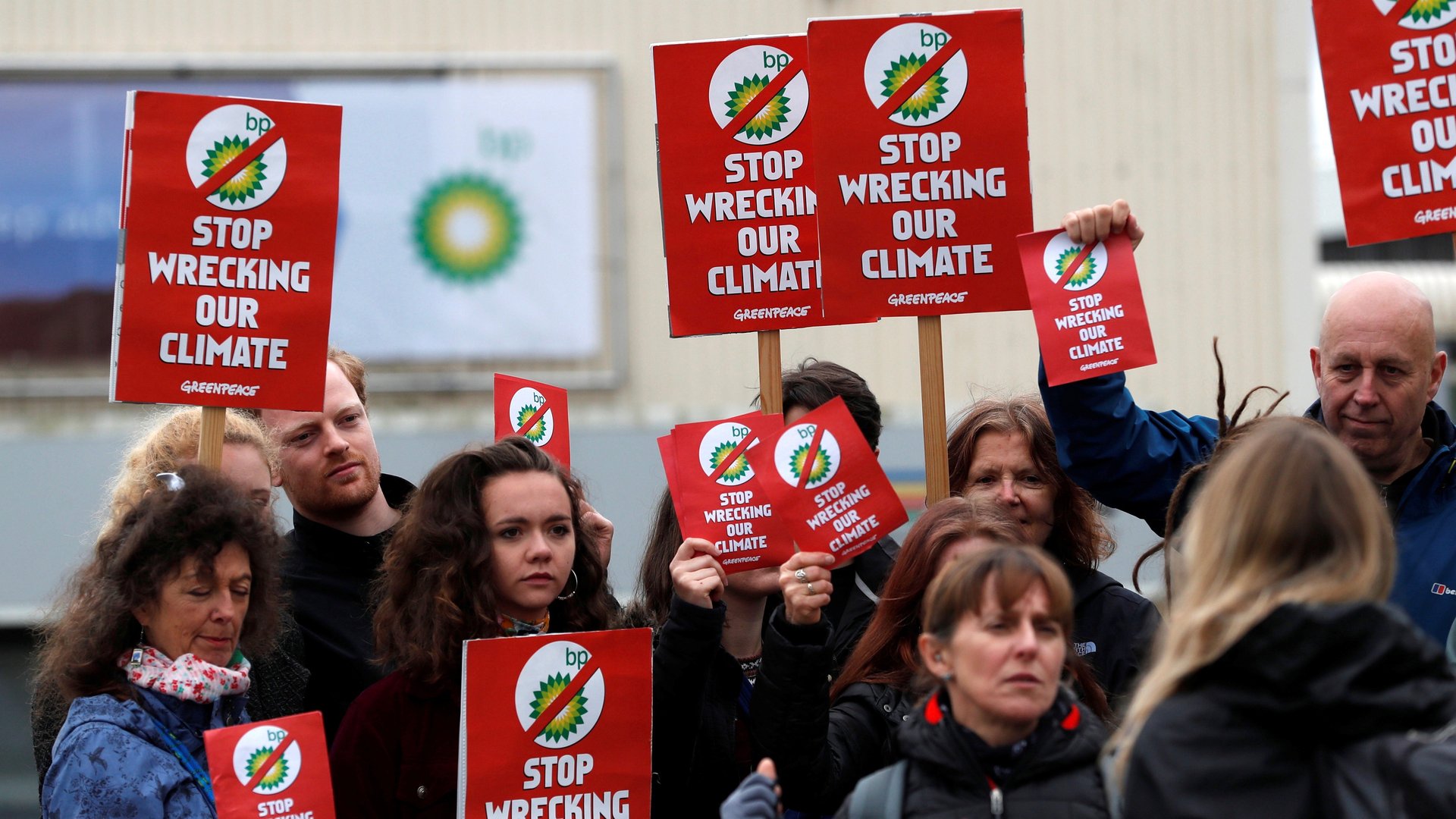What should the National Portrait Gallery do about a controversial donor?
Cultural institutions that rely on donations are increasingly facing pressure to reject funds from donors associated with controversial companies. Artists are pushing the National Portrait Gallery (NPG) in the UK, for example, to reject donations from BP ahead of an awards ceremony for a prize sponsored by the oil company.


Cultural institutions that rely on donations are increasingly facing pressure to reject funds from donors associated with controversial companies. Artists are pushing the National Portrait Gallery (NPG) in the UK, for example, to reject donations from BP ahead of an awards ceremony for a prize sponsored by the oil company.
On June 11, the gallery will present the 2019 BP portrait award. The top prize is £35,000 (about $44,500) in cash, and a possible commission worth £7,000 (about $9,000) for an additional work if the judges request it. The Guardian reports that some previous award winners and exhibitors argue that the money is tainted by its association with an oil company that profits from fossil fuel extraction and, as a result, contributes to a climate crisis.
The NPG had just recently become the first major art institution to give up a grant from the Sackler family, the US cultural philanthropists accused of knowingly profiting from the opioid epidemic.
A June 10 letter to NPG director Nicholas Cullinan, signed by eight portrait artists, explains that funding for the arts is dwindling, which makes it difficult for individual entrants to take a principled stand. Instead, they ask that the institution make a statement by rejecting BP’s donations. “That we must be prepared to associate our work with BP, providing a veneer of respectability to one of the world’s worst polluters and drivers of environmental destruction simply to participate, is deeply unfair,” they write. “As the director of an internationally respected gallery, you have the opportunity to show leadership by demonstrating what it means for a major cultural institution to not simply acknowledge the climate emergency, but to act accordingly.”
On June 8, artist Gary Hume, a judge in this year’s competition, also urged Cullinan to reject BP’s funding, writing:
I know how difficult fundraising is and how valuable an ongoing relationship with a major corporate sponsor can be. But in the case of BP, I feel that this is outweighed by the need to act urgently on the climate crisis we are now facing. Because this is such a high-profile sponsorship deal, I don’t think it’s possible to be neutral. Either we distance ourselves from one of the world’s biggest fossil fuel producers and embrace the challenge of decarbonizing, or we continue to give legitimacy to BP and its business activities that are seriously exacerbating the problem.
Such demands are becoming increasingly common. In March, the Sackler family trust announced (paywall) that it would halt all giving after the NPG and Tate galleries in London, and the Guggenheim Museum in New York, said they would no longer take the trust’s donations. The Sacklers have long been known for their generous funding of leading cultural institutions around the world. But their legacy of generosity has been eroded by accusations that the family’s company, Purdue Pharma, maker of OxyContin, played a role in fueling the deadly American opioid epidemic.
Activists contend that institutions should reject donations from companies and individuals that profit from harmful products. Otherwise, the institutions are essentially legitimizing ill-gotten gains. That means telling donors something fundraisers haven’t been inclined to say before: “No thanks.”